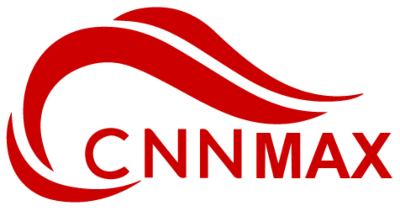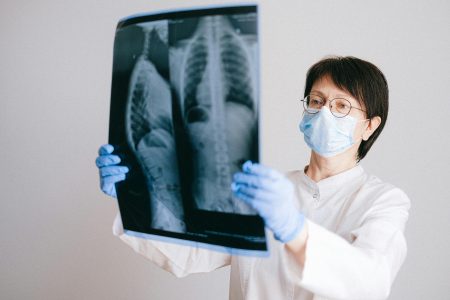Living with genital herpes can present unique challenges, but it’s empowering to know that alongside conventional medical treatments, a strategic approach to diet and supplementation can play a significant role in managing outbreaks and supporting overall immune health. While there’s no “cure” for herpes, natural strategies can help reduce the frequency and severity of recurrences, allowing for a more comfortable and confident life.
The key to natural herpes management often lies in bolstering your body’s natural defenses and creating an environment less conducive to viral replication. This article explores some of the most promising Genital herpes dietary supplement that can contribute to this goal.
The Immune System: Your First Line of Defense
The herpes simplex virus (HSV) often reactivates when the immune system is weakened by stress, illness, or nutritional deficiencies. Therefore, supporting a robust immune system is paramount.
Key Supplements for Herpes Management:
1. L-Lysine: The Arginine Antagonist
L-Lysine is perhaps the most well-known supplement in herpes management. It’s an essential amino acid that is believed to compete with L-arginine, another amino acid that the herpes virus needs to replicate. By increasing lysine intake, the theory is that you can effectively “starve” the virus of arginine, thereby inhibiting its ability to multiply.
- How it helps: May reduce the frequency and severity of outbreaks. Some studies suggest a daily intake of 1-3 grams of lysine can be beneficial for prevention and management.
- Food sources: Rich sources include meat, fish, dairy products, eggs, and legumes.
- Important note: While many individuals report success with lysine, scientific evidence is somewhat mixed, and high doses can cause side effects like stomach upset. Always consult a healthcare professional before starting high-dose supplementation.
2. Zinc: The Antiviral Mineral
Zinc is a vital mineral with powerful immune-boosting and antiviral properties. It plays a crucial role in immune cell function and can directly interfere with the replication of the herpes virus.
- How it helps: Studies suggest zinc supplementation, particularly topical application, can reduce the number of outbreaks and shorten healing time. Oral zinc may also help prolong the time between outbreaks.
- Food sources: Oysters, red meat, poultry, beans, nuts, and whole grains are good dietary sources.
- Considerations: Both oral and topical zinc options are available. For topical application, always dilute tea tree oil with a carrier oil before applying to the skin.
3. Vitamin C: The Immune Powerhouse
Vitamin C is renowned for its immune-enhancing properties. It acts as a powerful antioxidant, supporting the body’s ability to fight off infections and reduce inflammation.
- How it helps: Research suggests Vitamin C may help reduce the recurrence of HSV, especially when combined with antiviral medications, and can aid in faster healing.
- Food sources: Citrus fruits, bell peppers, strawberries, kiwi, and broccoli are excellent sources.
4. Vitamin D: The Sunshine Vitamin for Immunity
Often associated with bone health, Vitamin D also plays a critical role in modulating the immune system. Adequate Vitamin D levels are linked to a lower risk of various infections.
- How it helps: Vitamin D can activate T-cells, which are essential for fighting off pathogens like the herpes virus.
- Food sources: Fatty fish (salmon, mackerel), fortified foods, and egg yolks. Sunlight exposure is also a primary source.
5. Probiotics: Gut Health, Immune Health
A healthy gut microbiome is intimately connected to a strong immune system. Probiotics, beneficial bacteria, can support gut health and, in turn, enhance the body’s immune response.
- How it helps: Some in-vitro research suggests certain probiotic strains, particularly Lactobacillus rhamnosus, can help generate an immune response against herpes infections.
- Food sources: Fermented foods like yogurt, kefir, sauerkraut, and kimchi. Probiotic supplements are also widely available.
6. Omega-3 Fatty Acids: Anti-inflammatory Support
Omega-3 fatty acids, commonly found in fish oil, possess anti-inflammatory properties that can help manage the inflammatory response associated with herpes outbreaks.
- How it helps: May help support the immune system and reduce overall inflammation in the body, which can indirectly aid in managing outbreaks.
- Food sources: Fatty fish (salmon, flaxseed, chia seeds).
7. B Vitamins (especially B12): Cellular Support
B vitamins are crucial for energy metabolism and overall cellular health, which is essential for a robust immune system. Vitamin B12, in particular, has been linked to immune function and cell growth.
- How it helps: A deficiency in Vitamin B12 may increase the risk of herpes virus reactivation in certain cases.
- Food sources: Meat, poultry, fish, eggs, and dairy products.
Important Considerations:
- Holistic Approach: Supplements are best used as part of a holistic approach that includes a balanced diet, stress management techniques, adequate sleep, and regular exercise.
- Consult Your Doctor: Always consult with a healthcare professional before starting any new supplement regimen, especially if you are on other medications or have underlying health conditions. They can advise on appropriate dosages and potential interactions.
- Individual Variation: The effectiveness of supplements can vary from person to person. What works well for one individual may not yield the same results for another.
- Beyond Supplements: While supplements can be beneficial, remember that antiviral medications prescribed by your doctor are the primary treatment for managing genital herpes outbreaks.
By incorporating these dietary supplements and embracing a healthy lifestyle, individuals living with genital herpes can empower themselves to better manage their condition naturally, reduce the impact of outbreaks, and foster a stronger, more resilient immune system.







